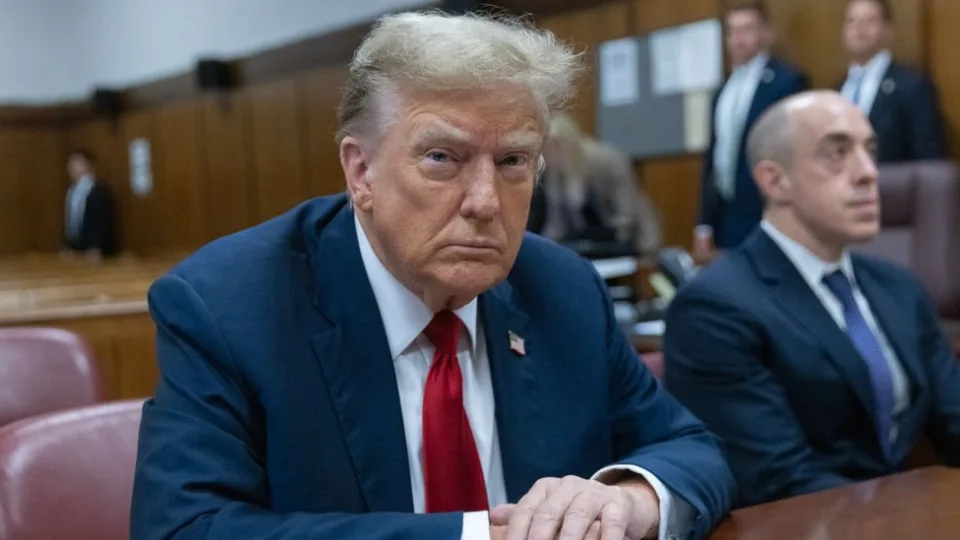Donald Trump, the first former president to ever go on trial, faces an unprecedented criminal case. The courtroom drama began on Monday, with half of a group of potential jurors swiftly ruled out due to impartiality concerns. Mr. Trump denies falsifying business records to conceal a hush-money payment to porn star Stormy Daniels.
Challenges in Jury Selection
Sixty out of 96 potential jurors promptly declared their inability to be impartial. Those remaining underwent rigorous questioning, including inquiries about their news consumption and reading habits. The dismissals underscore the difficulty of assembling a panel of 12 unbiased jurors for a case centered around a high-profile sex scandal involving a divisive former president who is once again eyeing the White House.
The Allegations
The Manhattan District Attorney’s office alleges that Mr. Trump directed his former attorney, Michael Cohen, to pay Daniels $130,000 (£104,000) in exchange for her silence about an alleged sexual encounter—a claim the former president vehemently denies. Prosecutors contend that this payment was an attempt to “unlawfully influence” the 2016 election. Mr. Trump has pleaded not guilty.
Jury Selection Process
Jury selection commenced in the afternoon. The judge first excused jurors who expressed partiality, leaving approximately 34 individuals. The remaining pool faced a comprehensive 42-question questionnaire, covering topics such as news preferences and familiarity with Trump’s writings. Eighteen prospective jurors were randomly placed in the jury box, where they answered questions one by one.
One juror, a Wall Street Journal reader, and another, an NPR listener, survived initial scrutiny. However, a woman candidly admitted her strong opinions about Donald Trump, leading to her dismissal. Despite objections from Mr. Trump’s legal team, she exited the jury pool.
Anonymity and Trump’s Reaction
All jurors will remain anonymous due to the case’s high-profile nature. While Mr. Trump maintained a stern expression in court, outside, he labeled the trial “nonsense” and an “assault on America.”
The difficult search for an impartial jury continues, as the trial unfolds in one of the bluest parts of the country—Manhattan, where Democrats dominate. The outcome rests in the hands of these 12 jurors, who must navigate a politically charged landscape and weigh the evidence before them.



Comments
Post a Comment